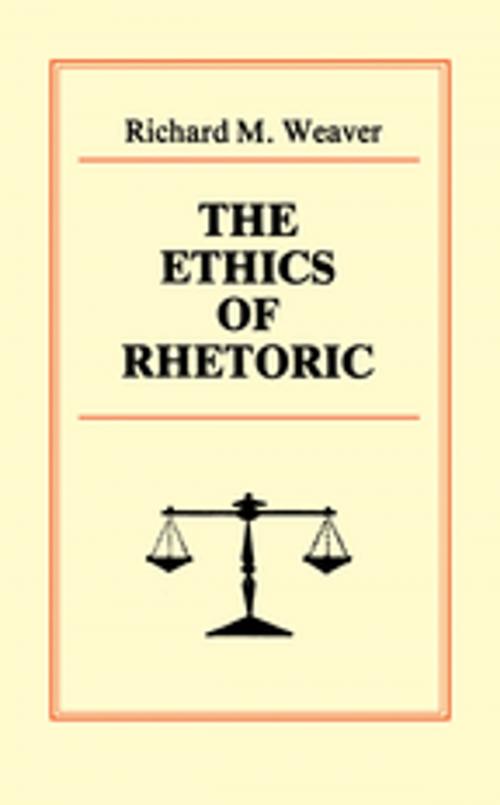| Author: | Richard M. Weaver | ISBN: | 9781136753558 |
| Publisher: | Taylor and Francis | Publication: | November 1, 1995 |
| Imprint: | Routledge | Language: | English |
| Author: | Richard M. Weaver |
| ISBN: | 9781136753558 |
| Publisher: | Taylor and Francis |
| Publication: | November 1, 1995 |
| Imprint: | Routledge |
| Language: | English |
Weaver's Ethics of Rhetoric, originally published in 1953, has been called his most important statement on the ethical and cultural role of rhetoric. A strong advocate of cultural conservatism, Weaver (1910-1953) argued strongly for the role of liberal studies in the face of what he saw as the encroachments of modern scientific and technological forces in society. He was particularly opposed to sociology. In rhetoric he drew many of his ideas from Plato, especially his Phaedrus.
As a result, all the main strands of Weaver's thought can be seen in this volume, beginning with his essay on the Phaedrus and proceeding through his discussion of evolution in the 1925 Scopes "Monkey Trial." In addition, this book includes studies of Lincoln, Burke, and Milton, and remarks about sociology and some proposals for modern rhetoric. Each essay poses issues still under discussion today.
Weaver's Ethics of Rhetoric, originally published in 1953, has been called his most important statement on the ethical and cultural role of rhetoric. A strong advocate of cultural conservatism, Weaver (1910-1953) argued strongly for the role of liberal studies in the face of what he saw as the encroachments of modern scientific and technological forces in society. He was particularly opposed to sociology. In rhetoric he drew many of his ideas from Plato, especially his Phaedrus.
As a result, all the main strands of Weaver's thought can be seen in this volume, beginning with his essay on the Phaedrus and proceeding through his discussion of evolution in the 1925 Scopes "Monkey Trial." In addition, this book includes studies of Lincoln, Burke, and Milton, and remarks about sociology and some proposals for modern rhetoric. Each essay poses issues still under discussion today.















